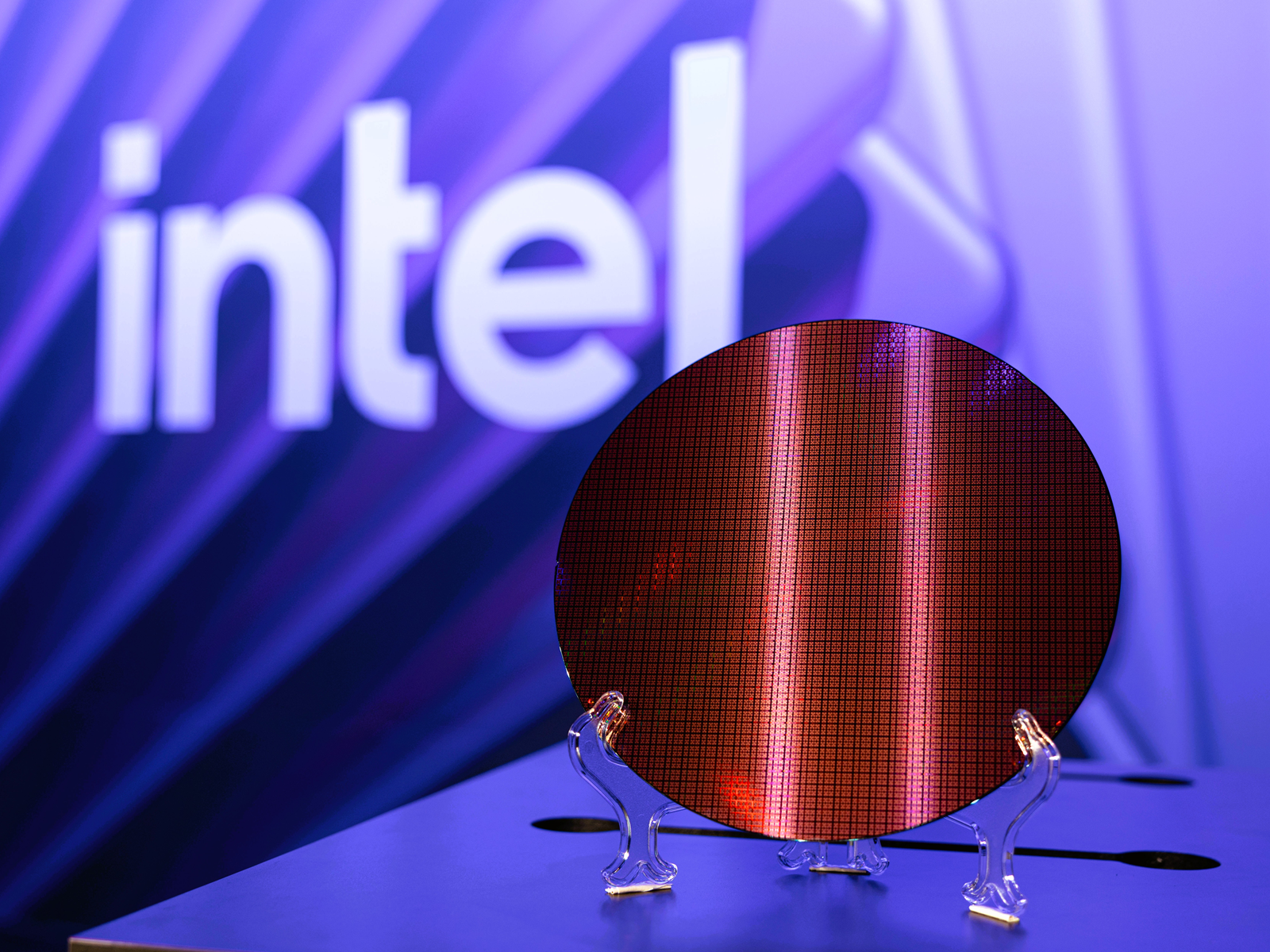Welcome to The Full Nerd newsletter—your weekly dose of hardware talk from the enthusiasts at PCWorld. Missed the latest topics on our YouTube show or burning news from across the web? You’re in the right place.
Want this newsletter to come directly to your inbox? Sign up on our website!
I never thought I’d think on laptops with envy. But here I am, writing these words.
It comes on the heels of Intel’s deep reveal of Panther Lake, which is what Adam, Will, and Mark were learning about last week. (Such is the super sekret life of tech journalists.)
Mark’s quick rundown of the facts is extensive, as overviews go—there’s just that many details to cover. I highly recommend reading his deep dive as well, but among the highlights: Three chip families represented by one 8-core and two 16-core processors, with a claim of 50 percent better multithreaded performance over previous generations. The top-tier 16-core CPUs pack juggernaut-level integrated graphics, including dedicated support for ray-tracing. Said integrated graphics take the form of Xe3 GPU cores touted as 50 percent faster on average compared to last gen. Multiframe generation support (yep, “fake frames”).
Intel is also cramming in upgrades to the “image processing unit” in its integrated laptop processors to boost clarity and color fidelity of video during webcam calls. Inaccurate skin tones and grainy low-light calls should be less of a problem on a Panther Lake chip. But the feature I want in all chips, including desktop? Auracast, which not only lets you wirelessly play videos across two devices simultaneously, but also use the onboard Bluetooth radio to triangulate the location of a lost item—whether the laptop itself or a connected device, like earbuds.
So why the envy, when desktop could get Auracast (and likely will)? When kickass integrated graphics matter less, given the flexibility for discrete GPU support? When desktop processors outstrip performance on laptops?
Memory issues.
I mean of course the ominous reports of anticipated shortages and sharper rising costs for memory. In a recent interview, Phison’s CEO thought that demand from AI data centers for NAND-based products could create a dearth lasting as long as 10 years.
A whole-ass decade.
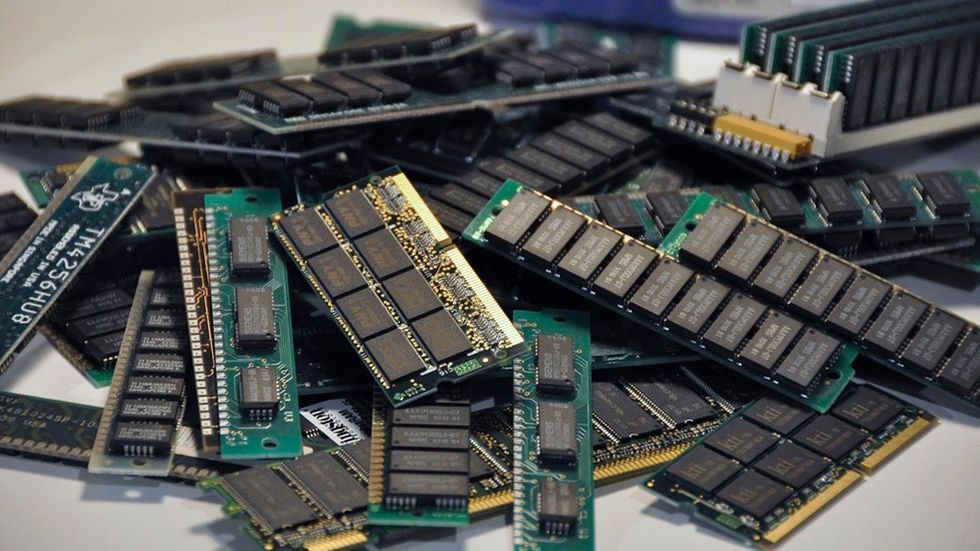
Blake Patterson
It’s not just NAND, either. DRAM is also expected to suffer from the same shortages and price hikes as demand skyrockets. (You can read Luke James’s excellent article over at Tom’s Hardware for more of a dive into the factors contributing to this bleak outlook.)
Here’s my thinking: CPUs and GPUs will continue to improve on desktop, yes. It’s likely features like Auracast will come to desktop processors, yes. But what good will that do me if I can’t afford to build a PC around those chips?
These days, I think of storage and memory as basic staples among hardware components—no different than the potatoes, rice, or bread of a meal. The idea of RAM and SSDs becoming both scarce and expensive makes me start to question what I can take for granted about desktop PCs and DIY building.
I wonder if interest in DIY building will slow a bit, due to the extra burden on budgets. If that will then lead to an equal slowdown in consumer CPU and GPU innovations. If that then increases the withdrawal from DIY building, leading vendors to pull back on the innovation and variety in cases, fans, and other such components.
I’m not predicting a death spiral, but I fear a period of dormancy that returns us to the mood and vibe of past eras—when desktop PCs were boring, bland, and not highly performant unless you had serious spare cash to drop.
For now, I’m preparing for austerity even as I look forward to seeing what else could come from Intel’s Panther Lake, Qualcomm’s Snapdragon X2 Elite and Elite Extreme, and future laptop processors. I love the idea of powerful mobile chips. I hate the idea that they could supplant desktop PCs as the only reasonable option for consumers.
In this episode of The Full Nerd
In this episode of The Full Nerd, Adam Patrick Murray, Will Smith, and special guest Edward Crisler, NA PR Manager at long-time GPU maker Sapphire Technology, discuss the current state of GPUs, including manufacturing challenges and benchmarking changes.
I should talk more about the actual episode here, but honestly, Ed always has great insights and you should definitely check out the whole conversation. More to the point, I’m still extremely preoccupied by the lollipop scorpions that Adam brought back as a souvenir for Willis.
Surely…that’s an HR violation? Isn’t it? Wouldn’t it be? (Willis, be careful!)
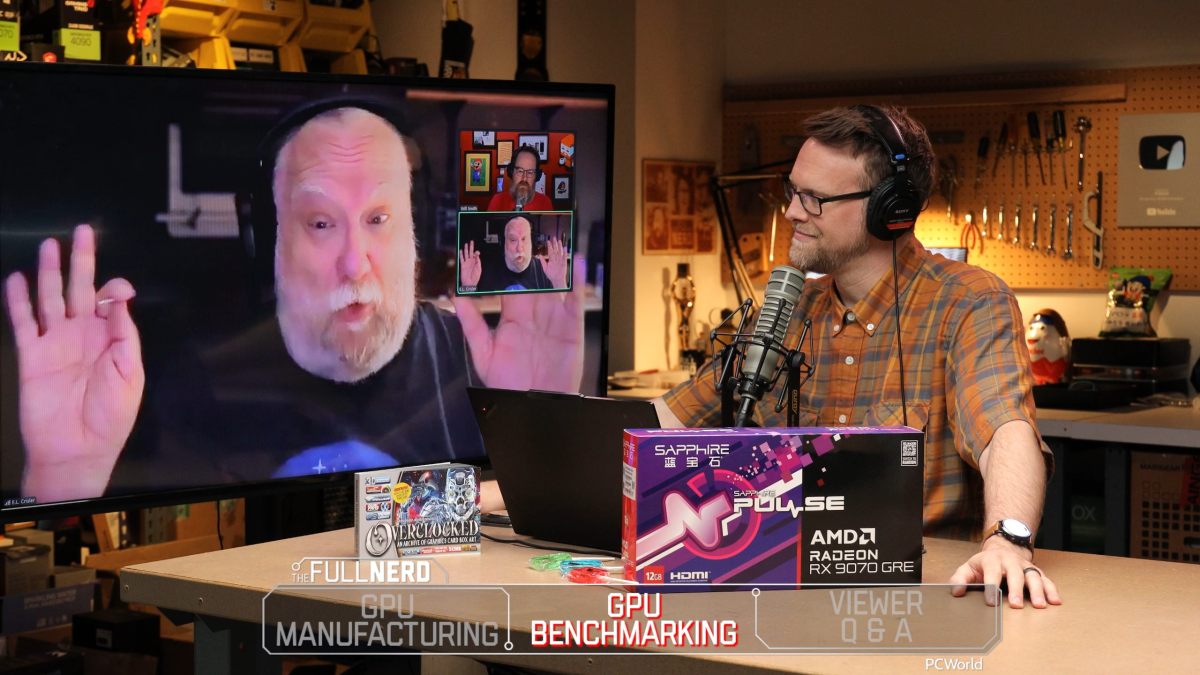
Willis Lai / Foundry
Missed our live show? Subscribe now to The Full Nerd Network YouTube channel, and activate notifications. We also answer viewer questions in real-time!
Don’t miss out on our NEW shows too—you can catch episodes of Dual Boot Diaries and The Full Nerd: Extra Edition now! (Adam just dropped a new episode of Extra Edition related to Panther Lake!)
And if you need more hardware talk during the rest of the week, come join our Discord community—it’s full of cool, laid-back nerds.
This week’s packed nerd news
Intel’s Panther Lake chips definitely made the biggest waves in tech news this week, but other interesting, quirky, and downright unsettling tidbits popped up, too. I’m predictably wary after reading a new report about AI models being easily corrupted, but balancing out the scales is a rather delightful DIY take from Google on a keyboard.
Also, we got word of it a few weeks ago, but now it’s time to bring out the bugle—AOL’s dial-up service is now officially dead. Rest in peace, old friend.
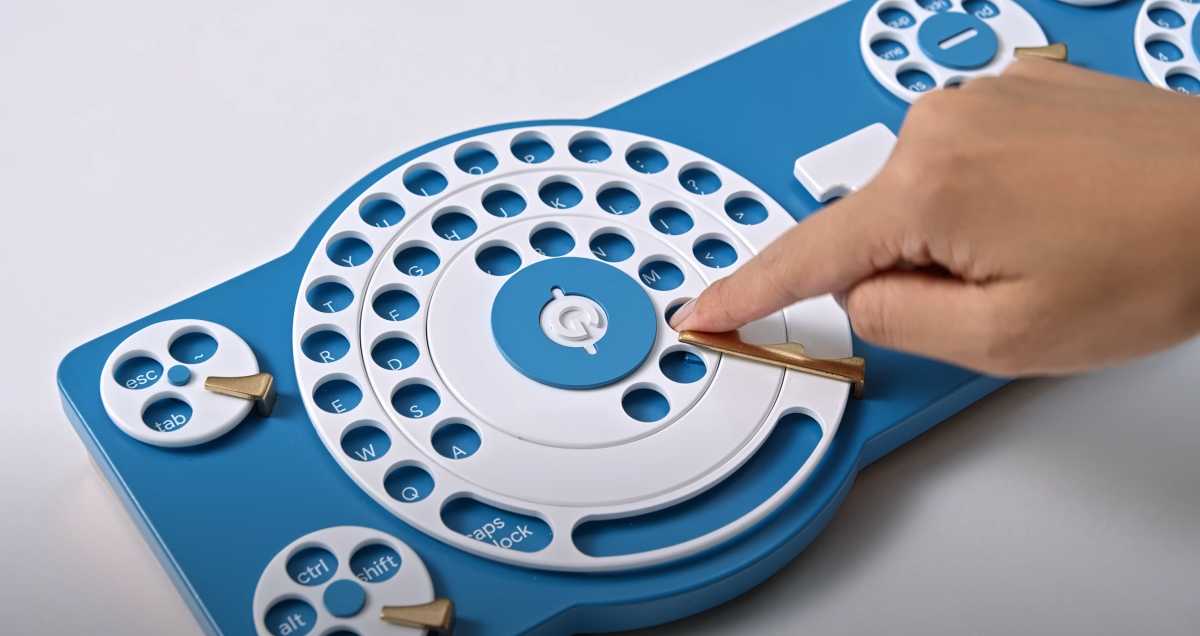
- Expect Thread Director changes in Intel’s Panther Lake: Mark wasn’t the only one who dug deep into Panther Lake while at the press briefings in Arizona. Will took a dive with Intel Fellow Rajshree Chabukswar into the upcoming improvements Intel is making to Thread Director for Panther Lake, too.
- Xbox Game Pass site chokes as flood of gamers rush to unsubscribe: Perfectly balanced, as all things should be. (If you want to try to load up on the previous, more reasonable price for Ultimate while you still can, try these methods.)
- The only RAM config that PC gamers need? This advice from our colleagues over at PCWelt takes the pressure off to spend more to get better performance. But will the internet agree to a sensible take?
- AI can figure out conversations based on…mice vibrations: Right out of a spy novel. I hope I’m never a high-profile enough target for this. (Also, I guess this justifies my use of a crappy cheap mouse.)
- Keep it secret. Keep it safe: Google’s allowing end-to-end encrypted emails to be sent to non-Gmail recipients. It’s only available to Workspace users, but I like what it could mean for personal accounts down the road.
- You can play real Game Boy games in a LEGO Game Boy: My current favorite modder is back with this dope LEGO GameBoy tweak. I definitely smiled when I read about this and saw who was behind it.
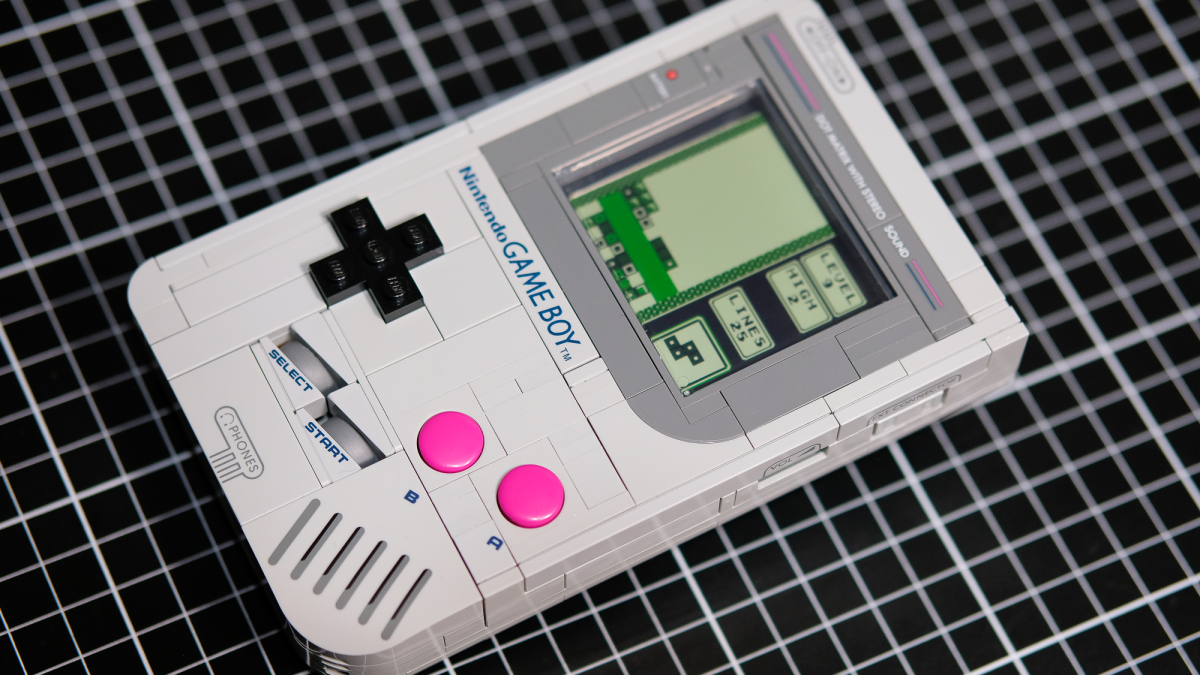
- I’d try this rotary dial keyboard: It would be slow, yes. But I like what it could mean for accessibility options. (Though maybe voice typing is faster. Assuming it recognizes what you’re saying with any accuracy. And it’s not always necessarily as private as I’d like.)
- So it doesn’t take much to corrupt AI models: Cool cool cool.
- At least one Starlink satellite per day is falling and burning up: The good news is the debris won’t kill anyone. The bad news is that these occurences will contribute to global warming, which indirectly causes death worldwide.
- Microsoft keeps trying to kill off local accounts in Windows 11: I’m really grumpy about this. Seriously, Microsoft, who do you think is bothering to open the Command Prompt during setup? It sure isn’t most folks.
- ‘Interstellar interlopers’ makes a great band name: As always, much appreciation for the fine folks at Ars Technica, keeping the wonder and mystery of space alive for us all.
Catch you all next week—if I manage to escape the boxes I’ll be swimming in, after taking inventory of my October Amazon Prime Day purchases. None of it is exciting, but I’m excited that I got a good deal on “boring” stuff. Yeah, I’ve reached that age.
~Alaina
This newsletter is dedicated to the memory of Gordon Mah Ung, founder and host of The Full Nerd, and executive editor of hardware at PCWorld.
This articles is written by : Nermeen Nabil Khear Abdelmalak
All rights reserved to : USAGOLDMIES . www.usagoldmines.com
You can Enjoy surfing our website categories and read more content in many fields you may like .
Why USAGoldMines ?
USAGoldMines is a comprehensive website offering the latest in financial, crypto, and technical news. With specialized sections for each category, it provides readers with up-to-date market insights, investment trends, and technological advancements, making it a valuable resource for investors and enthusiasts in the fast-paced financial world.
